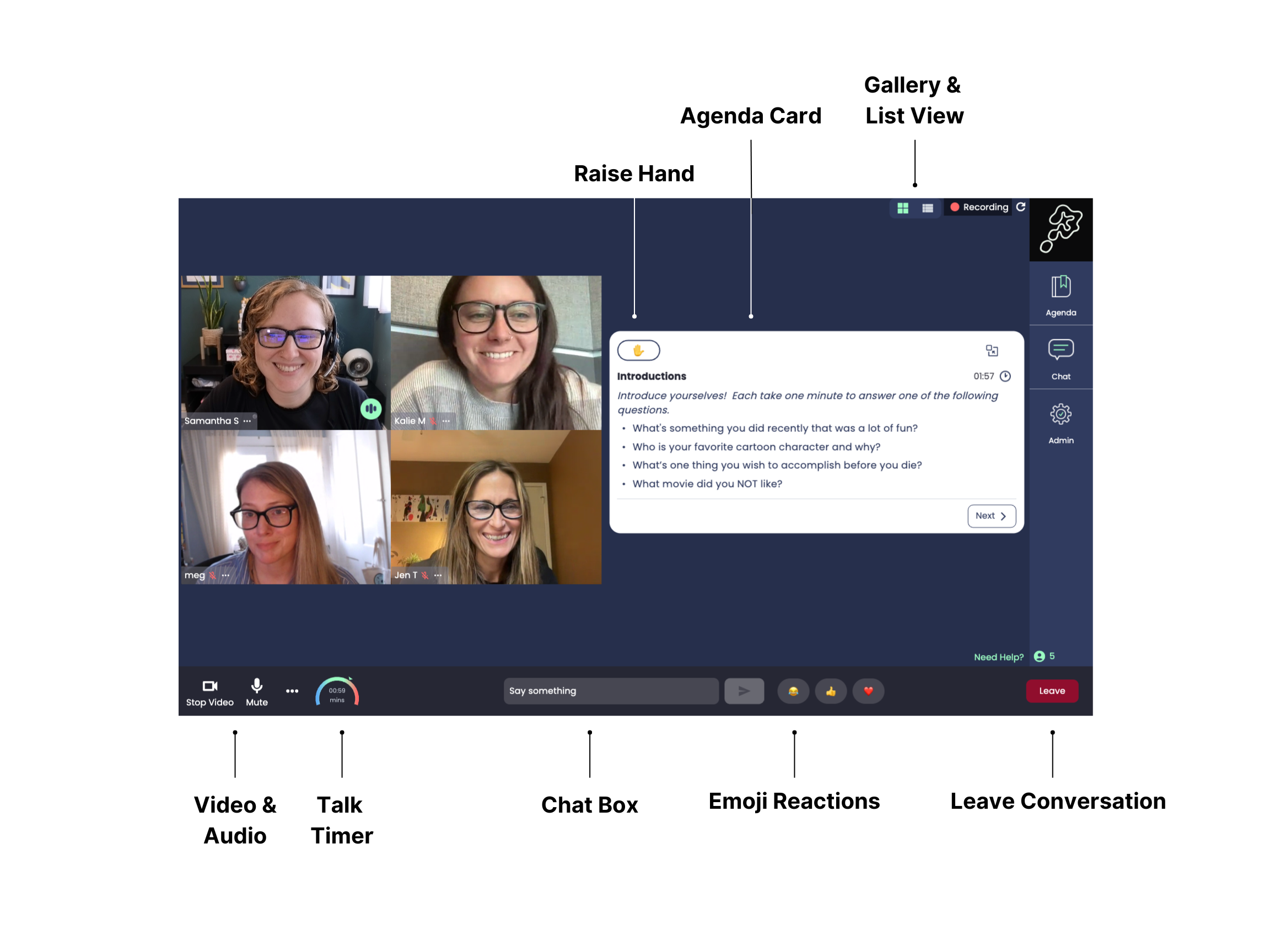Berkman Klein Center’s Applied Social Media Lab Invites Open Source Collaborators to Groundbreaking Frankly Platform
April 29, 2025, CAMBRIDGE – The Applied Social Media Lab at Harvard Law School’s Berkman Klein Center for Internet & Society is pleased to announce the open-sourcing of Frankly, a groundbreaking online video-based discourse platform designed to facilitate constructive dialogue and collaborative decision-making across diverse groups. Having adopted an AGPL license for Frankly – which has been in closed beta since September – the Berkman Klein Center now invites contributions and testing from developers, public interest technologists, and civic organizations alike.
Directed by Harvard Law Professor Lawrence Lessig, founder of Creative Commons, Deliberations.us, and Equal Citizens, Frankly will address the growing issue of political polarization by promoting constructive dialogue within communities.
"Social media has given us the tools to scream at each other. What we need now is better tools to talk to each other, constructively and with patience. Frankly is our contribution to that social need. And by open sourcing the code, we invite community builders everywhere — from schools to churches to local towns and national political parties — to take our code and build upon it. Here is a platform you can trust will be there for you, because it is licensed freely and forever." - Professor Lawrence Lessig
Frankly builds upon a promising code framework which had been used successfully for numerous dialogues and deliberative events, developed by Lightning Rod Labs co‑founders Ben Turtel and Danny Franklin and acquired by the Berkman Klein Center last year. Since September, the Lab has developed the platform in a closed beta, working closely with early users to refine the product and rebuild its architecture for greater modularity, maintainability, and a smoother contributor experience.

Frankly integrates unique features like structured discussion guides, intelligent group matching to ensure perspective diversity, facilitation support, and feedback mechanisms to ensure every voice is heard and equitably represented. The Berkman Klein Center expects to test the platform with organizations often gridlocked by division, including educational institutions, government agencies, corporations, and civic organizations.
"By open sourcing Frankly, we hope to ensure that the public has access to tools that will allow them to speak freely without requiring the use of proprietary technology aligned with private interests over public ones," said Meg Marco, Senior Director of the Applied Social Media Lab.
The Berkman Klein Center welcomes interested collaborators:
- Developers and software engineers passionate about building tools for democracy are encouraged to check out the platform’s codebase on Github, including getting started on the “Want to help?” page. Starring the repository and sharing it with friends and colleagues also helps the Lab find code contributors.
- Civic leaders who think their community could benefit from structured video dialogue are encouraged to email hello@frankly.org to request access to the closed beta. The Lab is particularly interested in hearing from civic organizations addressing local challenges, government agencies seeking citizen input, and organizations dedicated to bridging societal divides through respectful, constructive dialogue.
- Any others passionate about healthy dialogue and committed to staying in the loop are encouraged to sign up for the Deliberations mailing list to receive occasional news about Frankly's progress, as well as opportunities to get involved as they arise. The Frankly Public Workstream tracks the development process, including everything from bug fixes to major feature launches. For a broader view, the Frankly Roadmap outlines strategic priorities.
"The Berkman Klein Center brings together thinkers and builders in the public interest. Frankly is not only an effort to build with code, but also to help experiment with and build new norms and practices for online dialogue. While social media and videoconferencing may feel settled, there are so many other ways for people to come together, debate, and learn," said Professor Jonathan Zittrain, Co-Founder and Director of the Berkman Klein Center.
The Berkman Klein Center’s Applied Social Media Lab is generously funded by a gift from Frank McCourt and The Project Liberty Institute, with impact initiatives aimed at building a safer, healthier internet by empowering individuals to reclaim control of their digital lives.
Media Inquiries:
Jess Weaver:
jweaver@law.harvard.edu